"I Promised Hashem: If You Keep Me Alive, I'll Teach People to Do Good Deeds"
Shlomi Stern's journey to Judaism was full of twists and turns. How did he discover Chassidic teachings while studying Buddhism? What promise did he make during 'The Festival of Redemption' in Tzfat? And why did he recently feel the need to further strengthen his commitment to giving?
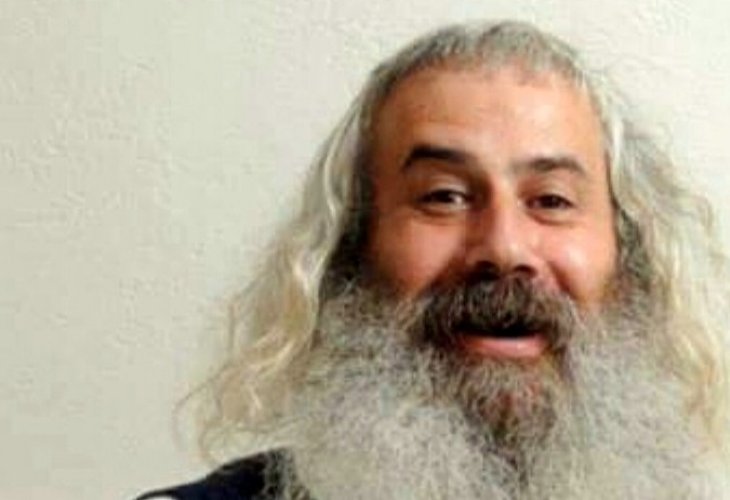 Shlomi Stern (Photo: David Stein)
Shlomi Stern (Photo: David Stein)About two years ago, after suffering a severe asthma attack, Shlomi Stern found himself between life and death. Miraculously, he survived, but when the doctor sternly told him it was a medical miracle and that he should have died, Stern decided to make a one-sided commitment. "In the middle of the attack, I said to the Creator: 'If You keep me in this world, I will make children happy and teach people to do good deeds'.
It's not that he hadn't been doing this before, in another way: as a writer, poet, and Israeli actor, he received many awards. Many of you might know him by his popular nickname "The Rebbe from the Train". He earned this name after he and his wife founded the organization 'The Traveling Train'—a stand offering holy books and the inner teachings of the Torah, with a mission to connect hearts and promote 'Love of Israel', operating for four years at the 'Savidor' train station in Tel Aviv.
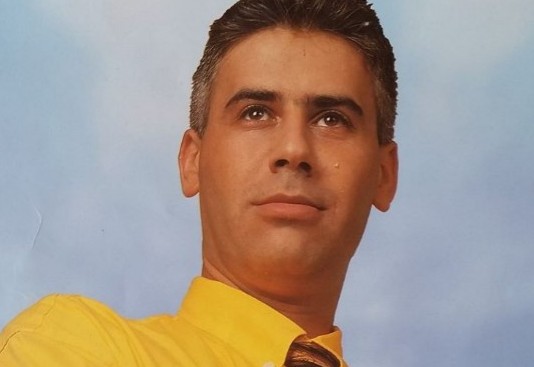 Shlomi Stern before his return
Shlomi Stern before his returnSo, giving from the heart was always there.
What was missing, then, when he made that commitment during the attack? "As someone who constantly looks at others, I learned from Moshe Rabbeinu the concept of 'seeing their burdens'. Part of the humility Moshe Rabbeinu teaches us is to focus solely on others. When you are occupied with others and not yourself, you become one with giving, and that's exactly what I aspired to," says Stern (52), a poet, writer, and actor, married and a father of six from Ramat Gan. "I was looking for a way to connect all parts of my people, through mitzvot between man and his fellow."
Out of this search was born the character of 'Saba Nachman'—a good grandfather who teaches children to do good deeds from an early age. This character is based on the teachings of Rabbi Nachman of Breslov and aims to instill in children sacred values like love for others, helping others, and doing good deeds—through experiences such as plays, games, and more.
"The moment I think about how to benefit others, the frustration with myself disappears"
Another initiative of his, also born out of a pure and sincere desire to benefit the people of Israel and perform more and more acts of kindness (often life-saving), is 'Giving Rights'. It all began when Stern encountered the story of Ela bat Adi—a sweet four-month-old baby lying in the NICU at Hadassah Ein Kerem, connected to dozens of machines, waiting for a miracle.
Ela was born with connected respiratory and digestive systems, needing an expensive surgery performed only in Boston. "Her story touched my heart so deeply that I looked for what I could do for her. The baby is on a ventilator and needs many merits and acts of kindness."
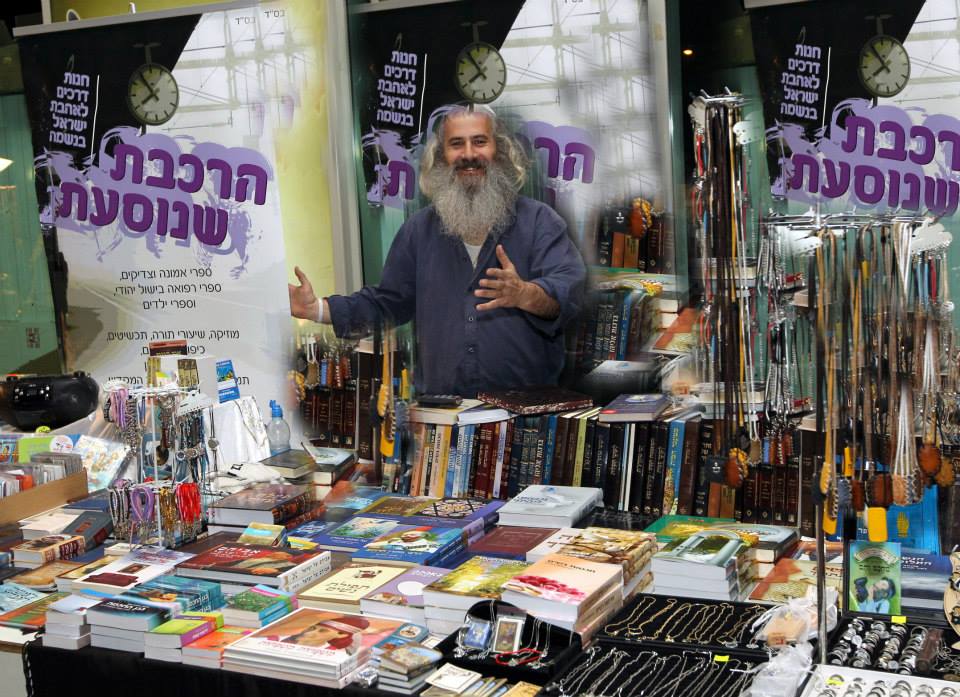
At that time, Stern launched a special performance called 'Naftali's Socks, which turned into Smiley Balls'—a lecture combined with a solo show, during which Stern shares his personal story, as well as the show 'License for Loving Kindness'. "During these performances, I invited participants to take on some positive commitment, and all the actions and commitments—were given to little Ela, hoping it would contribute to her recovery soon."
Many people (perhaps too many) are occupied with themselves to the point of not seeing others. They're consumed with their personal pain, healing their frustration towards themselves, but these things almost don't exist, according to Stern, for someone who puts themselves aside, rises above difficulties, and makes some room inside for others. "Since two thoughts cannot be in motion at once, the moment I think about how to benefit others and make them happy, at that moment—all the frustration I have with myself doesn't exist. I become a new creation."
"After I started reading King David, I stopped writing poetry"
Stern was born in Tel Aviv, an only child to a Holocaust survivor father—the only one of his family to survive the war atrocities. His home had no connection to Judaism, though his mother did fast annually on Yom Kippur. What did he know about Judaism? Not much. "Hashem was not in my world view. Some oppose religion, but for me—even that wasn't the case. I knew there were religious people, but they didn't interest me; I wasn't involved in their world."
In his youth, he attended the prestigious 'Pate' School for Arts and specialized in drawing and sculpture, but his love for the written word led to him becoming a poet over time ("I published my first poetry collection at 16"), and winning the 'Yehoshua Rabinowitz Foundation for the Arts' prize for his second poetry book, "Accordion Man". His poetry style was emotional and high-quality, and his poems were regularly published in 'Yedioth' and 'Ma'ariv'.
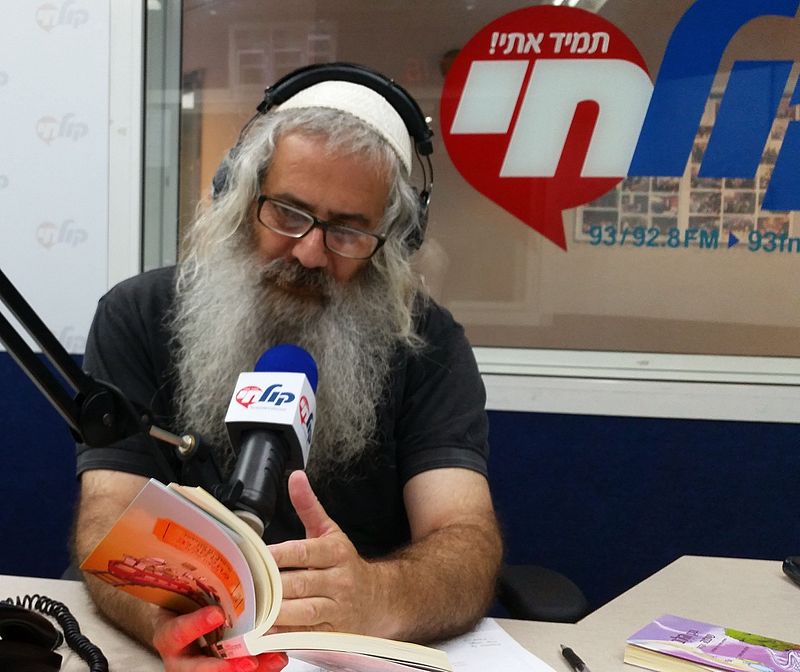
Poets like David Avidan, Yona Wallach, and Roni Someck were among those Stern socialized with at the time. "I was very connected to everyone. We regularly met at a café and talked poetry. I loved it very much and was good at it, until I encountered the Book of Psalms. After I started reading King David, I stopped writing poetry. He was the king of poetry for me. What else could be written after him? The Psalms simply silenced me."
Looking back at the path he's traveled from then to now, even he asks the rhetorical question: 'Who would believe that someone like me would one day return to faith?'
So how did it happen, after all?
"It happened following an eight-year-long economic trauma. I owned an advertising company called 'Composition', but poor management, including factors like misreading the market and purchasing too much advertising space—led me to collapse and lose everything."
In the midst of this crisis, Stern sought comfort and found it in the world of Buddha. He embarked on a spiritual journey into the depths of Osho's meditation, studied the field deeply, and soon became a Reiki master and meditation instructor in various techniques. Simultaneously, he studied alternative medicine, healing, and crystal therapy, and co-founded the Boombamela Festival with several friends.
"I was casually walking on the beach when I suddenly heard people singing 'L'chu Neranena' from afar"
Buddha enchanted him, excited him, and revived his old joy—from nothing, to the point where he almost thought he had found the truth. Yet, it was there, in the heart of idolatry and at the pinnacle of impurity—that a completely different surprise awaited him. It happened on a clear day when Osho's book, 'The Art of Death', fell into his hands.
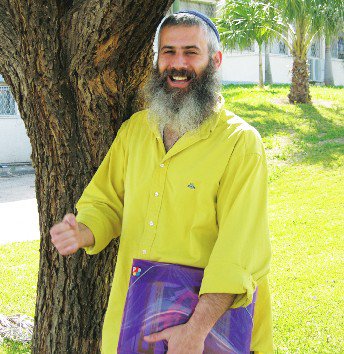
In this book, Osho speaks about death, no less and no more, according to the teachings of Jewish rabbis, some of whom were great Chassidic leaders. "That's where I first encountered the Baal Shem Tov and his teachings, I glimpsed and got captivated," Stern recalls. "From then on, I didn’t stop searching for materials on this 'Baal Shem Tov'. I was curious to know who he was."
At that time, Stern began working in a bookstore specializing in foreign teachings in Ramat Gan. "One day, we took the bookstore to the Boombamela Festival, and my role was to lecture on Osho's teachings to sell books. I was quite an intriguing and colorful figure back then, 'the purple Chassid', they called me, since I wore purple from head to toe.
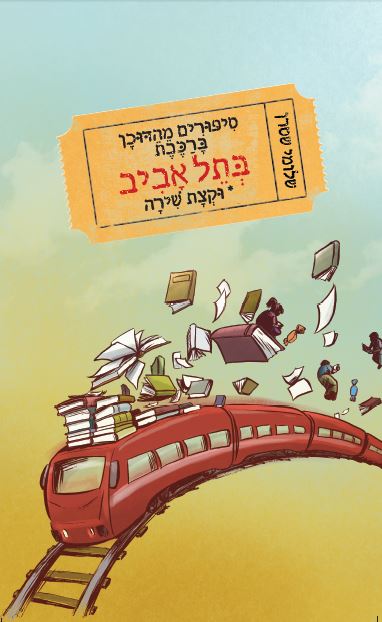
"On the evening of Shabbat, I was casually walking on the beach when I suddenly heard people singing 'L'chu Neranena' from afar. This singing touched me deeply." Then, like in movies, a Chassid named Ohev came out of a small tent and called to him: 'Come in, join our Kabbalat Shabbat'. "I stayed in the tent for two hours, and their singing didn't leave me. Even after the festival, when I returned to my parents' house, it continued to resonate in my mind for many days, and I knew I had to hear it again."
This is how he became acquainted with R' Shlomo Carlebach, and later with Chabad Chassidus (through a guy named Yonatan who would put on tefillin in the store from time to time) and Breslov.
One of the most formative events in his life was his first meeting with a Chabadnik named Eyal Reif, head of the 'Ascent' center in Tzfat. "We became friends, and he told me: 'Listen, maybe you should come to Tzfat once? It's almost the 19th of Kislev, 'The Festival of Redemption' in Chabad. Come and see what it's all about'. I agreed," Stern recalls.
His condition with the Chabadnik: "Find one relative for my father, and I promise to wear tzitzit"
What was supposed to be a one-day vacation extended to three full months—during which Stern was invited to share his personal story with 200 newly religious Chassidim. "When I finished the story, a Chabadnik came up to me with a tzitzit in hand and asked: 'So, what are you taking upon yourself now?'. A discussion ensued between us about the tzitzit until an idea flashed in my mind. I told him: "You want me to wear tzitzit? No problem, but on one condition.
"You Chabadniks are everywhere in the world. My father is the only one in his family to survive the Holocaust, but I've always wondered what happened to the rest of his family, and I want you to find me a relative—at least one. When you do your part, I'll do mine as well."
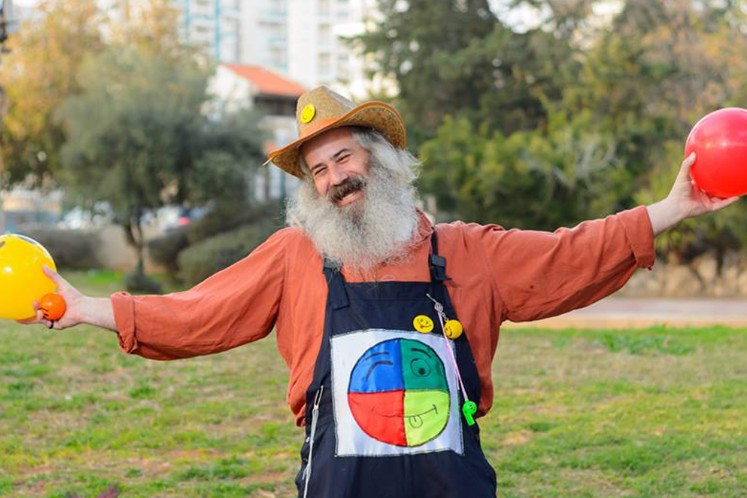
Despite the difficulty, Chabad wasn't deterred by the request, and after three months, Stern received the awaited call. "They told me they found my grandmother's grave, who passed away when my father was born. It was a very moving turning point for us because my return to faith hadn't exactly pleased my father. With this discovery, for the first time in a long time, I felt I could finally make him happy."
And how did your father react to the news?
"He was stunned, but what's interesting in all of this is that exactly two weeks after, my father received an invitation for a roots trip in Germany, for the first time in his life. Seventy years after losing his mother, my father got to visit her grave. It was a very emotional and formative moment for him, and when he returned to Israel, he told me with emotion and tears: 'It was the first time I hugged my mother'."
Shortly thereafter, he met and married Inbar. Since then, his creativity has grown, culminating in his submission of 'It's Time to Return', a late-night radio show for 'Kol Chai' radio in 2002. Meanwhile, he remained true to his love for writing, and in 2013 he published the book 'In the Garden of the Heart There Was a Point'—a tale based on Torah 282 in Likutei Moharan, which also received the endorsement of his rabbi, Rabbi Shalom Arush.

